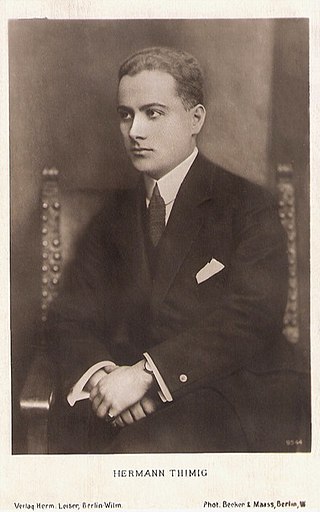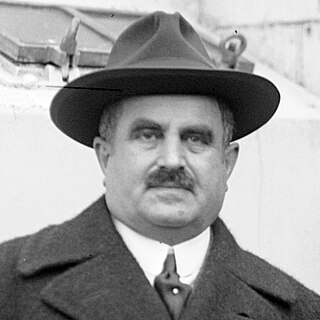
Ernst Lubitsch was a German-born American film director, producer, writer, and actor. His urbane comedies of manners gave him the reputation of being Hollywood's most elegant and sophisticated director; as his prestige grew, his films were promoted as having "the Lubitsch touch". Among his best known works are Trouble in Paradise (1932), Design for Living (1933), Ninotchka (1939), The Shop Around the Corner (1940), To Be or Not to Be (1942) and Heaven Can Wait (1943).

Bluebeard's Eighth Wife is a 1938 Paramount Pictures American romantic comedy film directed and produced by Ernst Lubitsch and starring Claudette Colbert and Gary Cooper. The film is based on the 1921 French play La huitième femme de Barbe-Bleue by Alfred Savoir and the English translation of the play by Charlton Andrews. The screenplay was the first of many collaborations between Charles Brackett and Billy Wilder. The film is a remake of the 1923 silent version directed by Sam Wood and starring Gloria Swanson.

The Oyster Princess is a 1919 German silent comedy film directed by Ernst Lubitsch and starring Victor Janson, Ossi Oswalda and Harry Liedtke. It is a grotesque comedy in four acts about an American millionaire's spoiled daughter's marriage that does not go as planned. It was shot at the Tempelhof Studios in Berlin. The film's sets were designed by the art director Kurt Richter, a frequent collaborator of Lubitsch.

Ossi Oswalda was a German actress, who mostly appeared in silent films, many of which were early films of German filmmaker Ernst Lubitsch. Her characters were often eccentric, spoiled, and child-like. Oswalda was given the nickname 'The German Mary Pickford' due to her popularity at the time.
Hanns Kräly, credited in the United States as Hans Kraly, was a German actor and screenwriter. His main collaborations were with director Ernst Lubitsch, and they worked together on 30 films between 1915 and 1929. In 1930, their longstanding partnership and with that much of Kräly's reputable career as a screenwriter came to an end due to an affair he was having with Lubitsch's then-wife Helene Krauss. Kräly is also notable for his comedy play Kohlhiesel's Daughters which has been turned into films on a number of occasions.
I Don't Want to Be a Man is a 1918 German film directed by Ernst Lubitsch.

The Doll is a 1919 German romantic fantasy comedy film directed by Ernst Lubitsch. The film is based on the operetta La poupée by Edmond Audran (1896) and a line of influence back through the Léo Delibes ballet Coppélia (1870) and ultimately to E. T. A. Hoffmann's short story "Der Sandmann" (1816).

Hermann Thimig was an Austrian stage and film actor. He appeared in 102 films between 1916 and 1967.
Sally, Sally Meyer or just Meyer was a silent movie slapstick character played by Ernst Lubitsch, before he moved to Hollywood. The character was an antisemitic satire of a Jewish businessman.

Paul Davidson was a German film producer.

Shoe Palace Pinkus is a 1916 German silent comedy film directed by Ernst Lubitsch and starring Lubitsch, Else Kentner and Guido Herzfeld. In English it is sometimes known by the alternative titles Shoe Salon Pinkus and The Shoe Palace. It was part of the Sally series of films featuring Lubitsch as a sharp young Berliner of Jewish heritage. After leaving school, a self-confident young man goes to work in a shoe shop. Soon after, he becomes a shoe tycoon.

My Wife, the Movie Star is a 1919 German silent comedy film directed by Ernst Lubitsch and starring Ossi Oswalda, Paul Biensfeldt and Victor Janson.

When Four Do the Same is a 1917 German silent comedy drama film directed by Ernst Lubitsch and starring Ossi Oswalda, Emil Jannings and Margarete Kupfer. Lubitsch himself plays a book shop employee who falls in love with Jannings' daughter. The film was a key transitional work in Lubitsch's career, as he began to produce films with greater depth than his early light comedies.

Erich Schönfelder (1885–1933) was a German screenwriter, actor, and film director of the silent and early sound eras. Early in his career he worked frequently with Ernst Lubitsch.

The Flame is a 1923 German silent drama film directed by Ernst Lubitsch and starring Pola Negri, Hermann Thimig, and Alfred Abel. The film is based on a play by Hans Müller. In the United States it was released under the alternative title Montmartre. It was the last film Lubitsch made in Germany before emigrating to Hollywood where he directed his first American film Rosita for United Artists the same year.

Express Train of Love is a 1925 German silent comedy film directed by Johannes Guter and starring Ossi Oswalda, Willy Fritsch and Lillian Hall-Davis. It premiered on 6 May 1925 at the Ufa-Palast am Zoo in Berlin.

The Tempelhof Studios are a film studio located in Tempelhof in the German capital of Berlin. They were founded in 1912, during the silent era, by German film pioneer Alfred Duskes, who built a glass-roofed studio on the site with financial backing from the French company Pathé. The producer Paul Davidson's PAGU then took control and constructed a grander structure. The First World War propaganda drama The Yellow Passport, the historical comedy Madame DuBarry and the expressionist 1920 silent film The Golem were made there by PAGU.
The Swabian Maiden is a 1919 German silent comedy film directed by Georg Jacoby and Ernst Lubitsch and starring Ossi Oswalda, Carl Auen and Hermann Böttcher.

The Ballet Girl is a 1918 German silent comedy film directed by Ernst Lubitsch and starring Ossi Oswalda, Harry Liedtke and Margarete Kupfer.
The Toboggan Cavalier is a 1918 German silent comedy film directed by Ernst Lubitsch and starring Ossi Oswalda, Harry Liedtke and Lubitsch.















